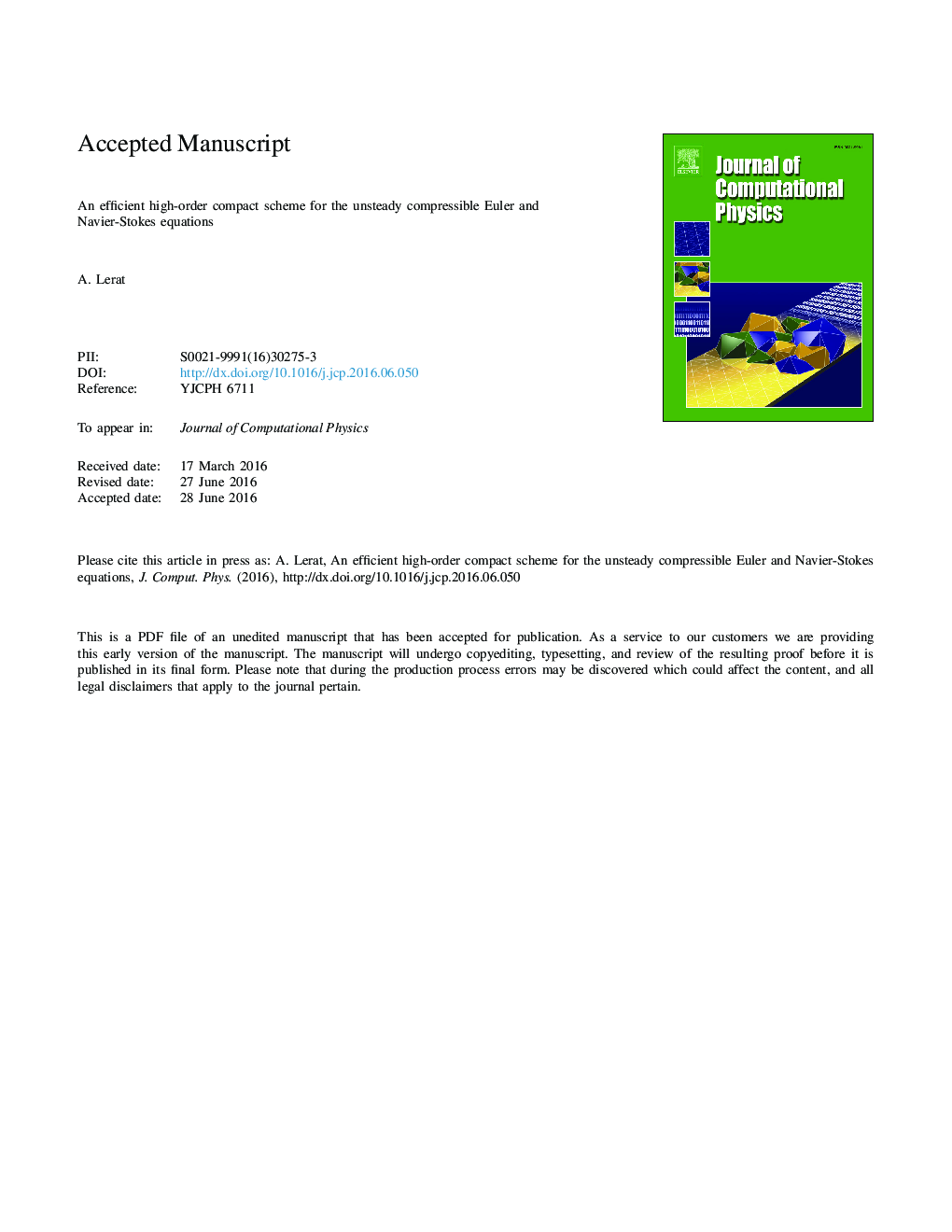| Article ID | Journal | Published Year | Pages | File Type |
|---|---|---|---|---|
| 6929576 | Journal of Computational Physics | 2016 | 29 Pages |
Abstract
Residual-Based Compact (RBC) schemes approximate the 3-D compressible Euler equations with a 5th- or 7th-order accuracy on a 5Ã5Ã5-point stencil and capture shocks pretty well without correction. For unsteady flows however, they require a costly algebra to extract the time-derivative occurring at several places in the scheme. A new high-order time formulation has been recently proposed [13] for simplifying the RBC schemes and increasing their temporal accuracy. The present paper goes much further in this direction and deeply reconsiders the method. An avatar of the RBC schemes is presented that greatly reduces the computing time and the memory requirements while keeping the same type of successful numerical dissipation. Two and three-dimensional linear stability are analyzed and the method is extended to the 3-D compressible Navier-Stokes equations. The new compact scheme is validated for several unsteady problems in two and three dimension. In particular, an accurate DNS at moderate cost is presented for the evolution of the Taylor-Green Vortex at Reynolds 1600 and Prandtl 0.71. The effects of the mesh size and of the accuracy order in the approximation of Euler and viscous terms are discussed.
Related Topics
Physical Sciences and Engineering
Computer Science
Computer Science Applications
Authors
A. Lerat,
